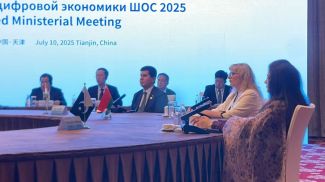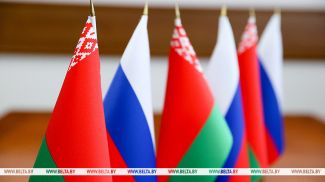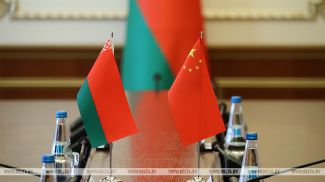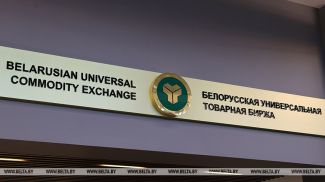MINSK, 2 November (BelTA) – Microelectronics and microchip production are among the top most promising industries. Leading countries are investing billions of dollars in them. Belarus has good potential and goods prospects providing there is funding and support. There is already traction in this direction, including with the support of Russia as part of import-substituting projects, but we still have a long way to go together, Professor, Candidate of Economic Sciences Georgy Grits said in a new episode of the project “After the Fact: Lukashenko's Decisions” on BelTA's YouTube channel.
The world market of microelectronics is very monopolized, Georgy Grits said. More than 50% of microchips, or 1.2 trillion units worth more than one and a half trillion U.S. dollars, is actually produced in two places: Chinese Taiwan and the Republic of Korea. Even the U.S. doesn't have the full production cycle.
Many, including the EU and the United States, invest hugely in an attempt to catch up with the technological level of the monopoly countries. For example, the European Union has allocated $53 billion for these purposes, the United States - about $55 billion. China, which has also been subjected to sanctions and restrictions on the supply of high-tech goods and equipment, including for microelectronics, is investing $1.3 trillion in this sector. The amount is greater than that of others because they strive to create the full production cycle.
By the way, no company or country can boast the full cycle. The creation of such production requires colossal funds. According to the expert, it took $1-1.5 billion to build a plant to make 130μm microchips a couple of years ago. Today plants that are being built to make chips with a thickness of 20 nanometers cost $10-20 billion. "Development of one microchip five years ago required about $150,000. Today costs range from $1 million to $1.5 million.
As is known, Russia is set to provide Belarus with a $1.5 billion loan for the import-substitution projects. However, these funds will be directed primarily to the mechanical engineering industry. According to Georgy Grits, the resources spent on microelectronics should be viewed as a pilot, initial project that can further turn into an research effort and trials. “There is still a long way to go before serial production,” the expert is convinced.
He stressed that after the introduction of sanctions and the withdrawal of many foreign companies from Russia, the market worth hundreds of billions of U.S. dollars is now up for grabs: “This is a opportunity. The market has been freed and needs to be filled.” Unlike Russia, Belarus has preserved and further developed its engineering school. “All our major industrial enterprises are up and running. Russia is only trying to restore this potential,” said the professor.
In his opinion, the market can be divided into the premium segment and critical import, which in turn has an important component - import in the national security sector (including defense, technology, food, healthcare).
“From this point of view, we can see that today's focus in the Union State is on so-called critical import. This issue requires both time and resources. Therefore, we need patience and a targeted industrial policy in accordance with the resources that we have today,” Georgy Grits said.













